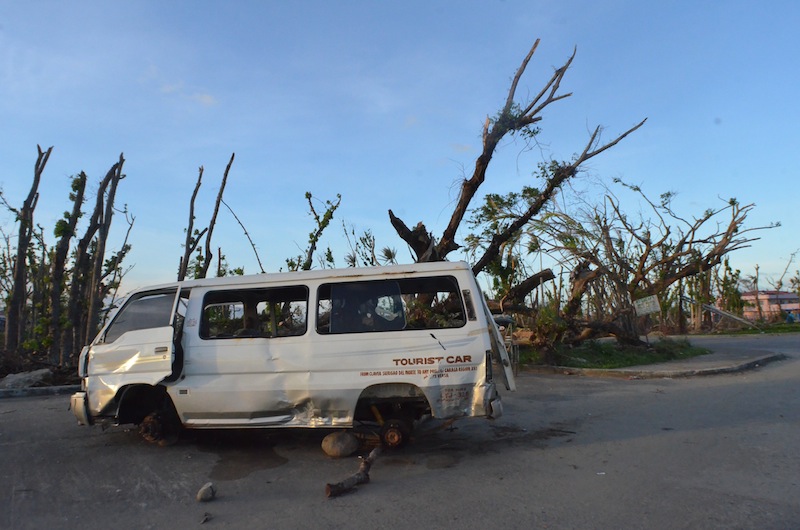A human rights-based approach can help protect the adaptive capacities of climate-vulnerable nations, like the Philippines, as climate change raises critical issues on human rights and the environment, according to the Philippine delegates.
Climate Change Commissioner Emmanuel Guzman said the Philippines will push for a human rights approach as a “bedrock principle” of the climate change agreement in Paris.
“ This is a radical and fundamental shift in the negotiations,” de Guzman said in a press conference on Wednesday. “Articulating human rights in the climate talks is critical because it is about survival.”
Next week, more than 195 nations will gather in Paris, France for the 21st Conference of Parties (COP21) of the United Nations Framework Convention on Climate Change (UNFCCC) with a goal of coming up with a legally binding climate deal to reduce greenhouse gas emissions by 2 degrees Celsius or less to avert the catastrophic effects of the changing climate.
“The Philippines is an important player in the climate negotiations as the face of climate vulnerability and as mentioned by French President François Hollande, the road to Paris starts in Manila,” De Guzman said, adding that the Philippines will send about 50 delegates from various government agencies.
While the developing nation has little global emissions compared to more developed nations, the country has shown the world the impact of climate change to vulnerable nations when super typhoon Yolanda (international: Haiyan) hit central Philippines in November 2013.
Based on the government data, more than 6,000 people died when two-storey-high storm surges submerged low-lying islands of the archipelago.
Climate financing remains one of the big hurdles in a successful climate agreement, De Guzman added.
“A negotiating block considers this agreement as a financing issue so if this particular issue is not made clear, predictable and transparent, it will fall short of expectations,” he said.
Loss and damage as well is one of the sticky issues in the negotiations, apart from finance, technology transfer, mitigation, capacity building and long-term framework of the climate action plans or the so-called Intended Nationally Determined Contributions (INDCs).
But at the negotiation sessions, six core issues will be tackled: adaptation, mitigation, finance, technology development and transfer, capacity building and transparency and other legal issues.
In Paris, the Philippines will focus on four crosscutting issues: equity, ambition, pre-2020 action and post-2020 financing.
“The Philippines views ambition in the post-2020 package as providing greater support to developing countries so that they can deliver effectively on their INDCs,” De Guzman said.
De Guzman also highlighted the Climate Vulnerable Forum (CVF) and the Vulnerable 20 (V20) Group of Finance Ministers’ efforts in pushing for more fund to assist poorer, vulnerable countries to adapt to climate change.
He said that a work program on carbon pricing can be an outcome in Paris, as it allows those ready to do so to implement such measures in the short term and aiming for global policy convergence in the future to minimize possible distortions to trade. “This will send the necessary signal to reorient investments into clean energy development.”
“ Failure is not an option and we cannot think of another five to ten years of more talks and inaction,” De Guzman said.
Anna Valmero
Latest posts by Anna Valmero (see all)
- Thousands took to the streets of Paris for climate action - December 13, 2015
- Rallies call for climate change action - December 12, 2015
- Climate-induced migration must be at the core of the Paris deal - December 11, 2015

